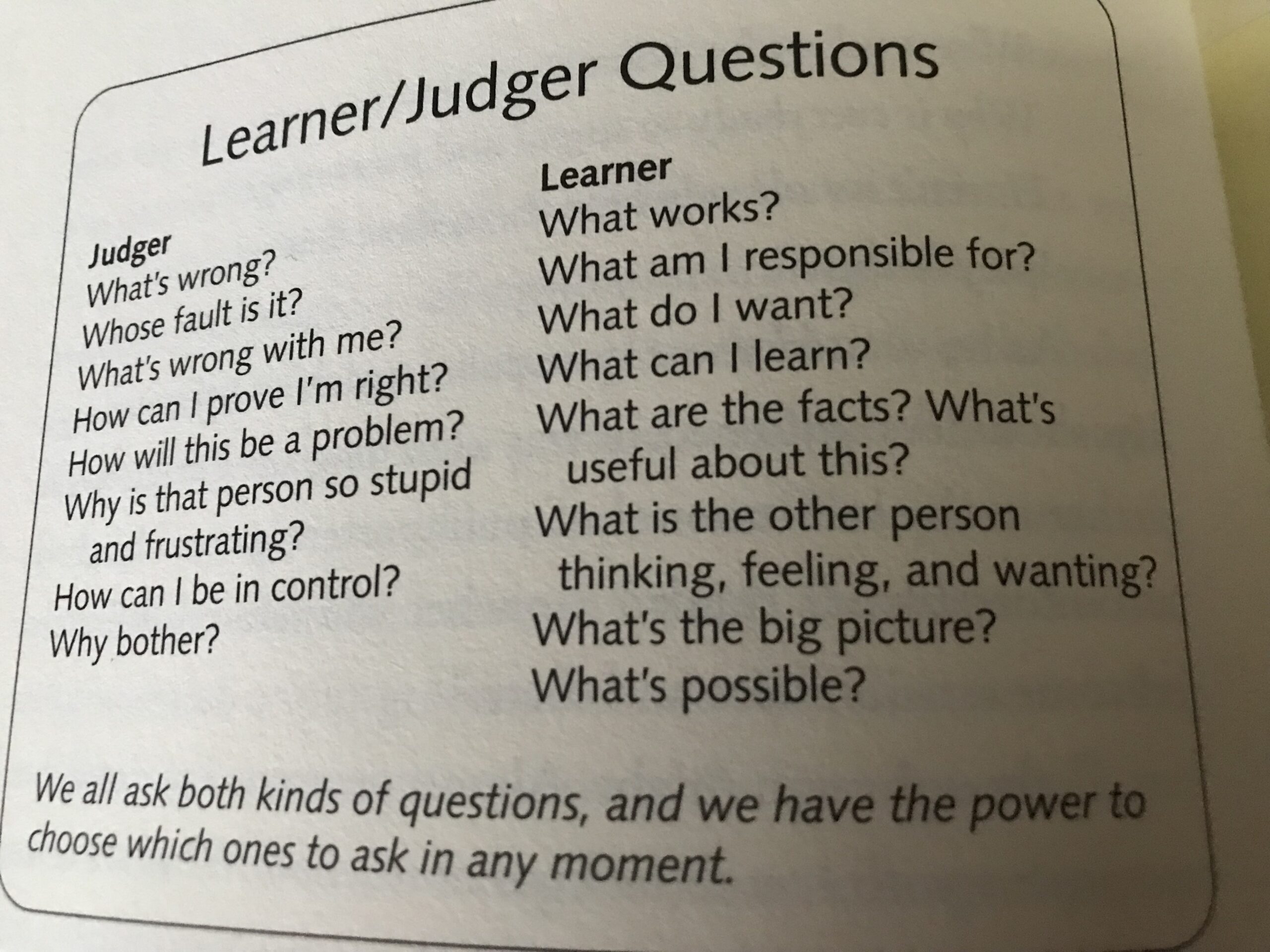Do you have awareness of your ego and your higher self? How do you know if you are thinking and acting from your ego or your higher self?
Skill #5 of Spiritual Intelligence as defined by Cindy Wigglesworth (Wigglesworth, 2012) is developing an awareness of our ego and higher self.
Science, psychology, and spirituality have much to say about the ego. Some traditions treat the ego as evil with and aim to eliminate and suppress the ego altogether. However, the concept of ego is much more complex. Surprisingly, in the context of cultivating spiritual intelligence, the ego serves as a necessary component (Wigglesworth, 2012). Ego can help us navigate the complexities of human experience (Wilber, 2000). Embracing the ego for its value while overcoming its negative limitations is part of Spiritual Intelligence.
Our ego
Our ego (very simply) might be considered the equivalent of our persona. At least early in life, it helps define our identity and sense of self. It helps us navigate the world and is a necessary part of who we are. It helps us make socially appropriate decisions. Our ego might help us understand our personal preferences and talents: when we are rewarded for those it can become part of our sense of self-worth. However, if we leave our ego in an undeveloped state, it can be immature, selfish, fearful or angry. Some science suggests that the ego is designed to protect us and responds using our primal brain – our fight or flight mechanism.
However, most of us don’t live in a jungle where we need to fear roaring lions and tigers and bears – oh my!
If we don’t understand the difference between our ego and a higher self, we can get tripped up in personal relationships and work. The ego drives arguments and controlling behaviours. It drives people who steamroll over others at any cost to further themselves. The ego can be afraid, greedy, hungry – and is usually unfulfilled.
In skill 13 I will offer ideas to keep our higher self in charge more often and tips to put the ego in its necessary place in service to our higher self.
One way to shift from ego to higher self is to recognize when we are hooked, as Brene Brown suggests (Brown, 2017). We might recognize our ego activation in a stressful confrontation. Our heart races, our throat and voice tighten, our breathing escalates, we get tunnel vision, and we blush – and then do or say something we might regret. If we can recognize this evidence of getting hooked, we can try to pause instead.
There is power in the pause.
Pause. Think. Shift.
I remember some wise advice I had early in life: “Don’t get mad; get curious.
This brings me to the reason I attached the image I have with this blog. Go back and have a look. It is from a book called Change Your Questions: Change Your Life (Adams, 2009). It suggests, that once we know we are hooked, we can become curious about our reactions and then ask ourselves new and better questions. Review the questions in that image and let me know what you think in the comments. Can these questions help you shift to your higher self?
Our higher self
Our higher self is the wiser, calmer self that can take a bigger picture view. It may include some of the gifts as described in ancient scripture such as “love, joy, peace, forbearance, kindness, goodness, faithfulness, gentleness and self-control” (Galatians 5:22-23) as I mentioned in Skill #3 where I wrote about understanding our values and values hierarchy.
If we listen to our higher self, we are listening to a voice that can see the bigger picture, and use discernment in complex situations.
Ironically our higher self can step back and choose to love our imperfections, including those of our ego. Brokenness in ourselves and others is part of life, work and relationships as Parker Palmer writes in A Hidden Wholeness: Journey Toward an Undivided Life (Palmer, 2008). We can have compassion for our ego and recognize perhaps the negative parts of our ego may come from a fear or need. Then our higher self can rise above and offer better guidance on our path.
I believe the more each of us spiritual beings who are on a human journey can be aware of our ego and higher selves, it will be one small step to living and undivided life where we all can contribute to something bigger beyond ourselves.
If you want to learn more about nurturing your higher self, reach out to me here. I would love to work with you so we can transform the world (or parts of it where we can reach at least.)
You can read more about Spiritual Intelligence in my blog series here.
Resources
Adams, M. G. (2009). Change your questions, change your life: 10 powerful tools for life and work (2nd ed). Berrett-Koehler Publishers.
Brown, B. (2017). Rising strong: How the ability to reset transforms the way we live, love, parent, and lead (2017 Random House trade paperback edition). Random House.
Palmer, P. J. (2008). A hidden wholeness: The journey toward an undivided life (1st ed). Jossey-Bass.
Wigglesworth, C. (2012). SQ21: The Twenty-One Skills of Spiritual Intelligence. BookBaby.
Wilber, K. (2000). Integral psychology: Consciousness, spirit, psychology, therapy (1st pbk. ed). Shambhala.

